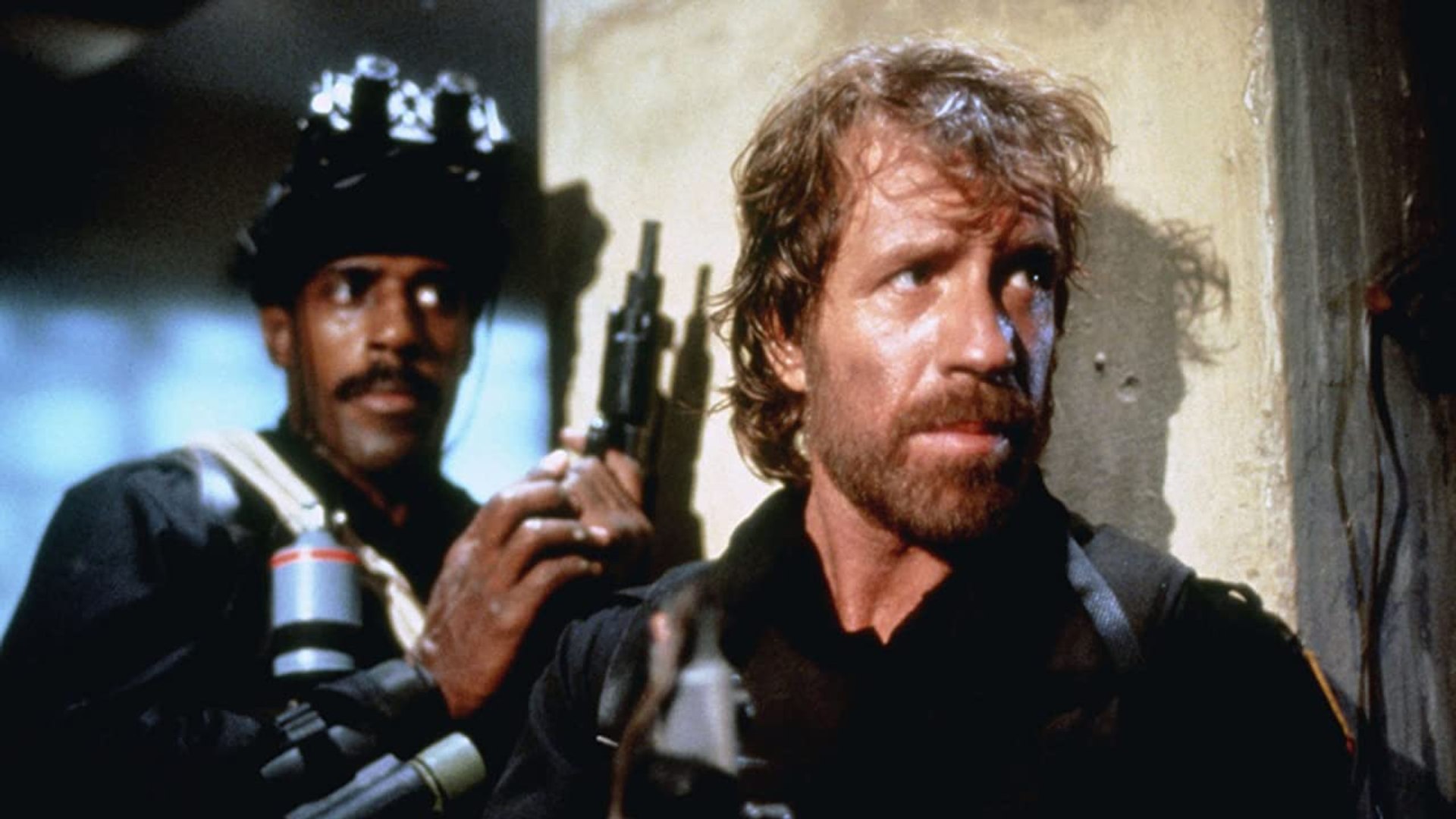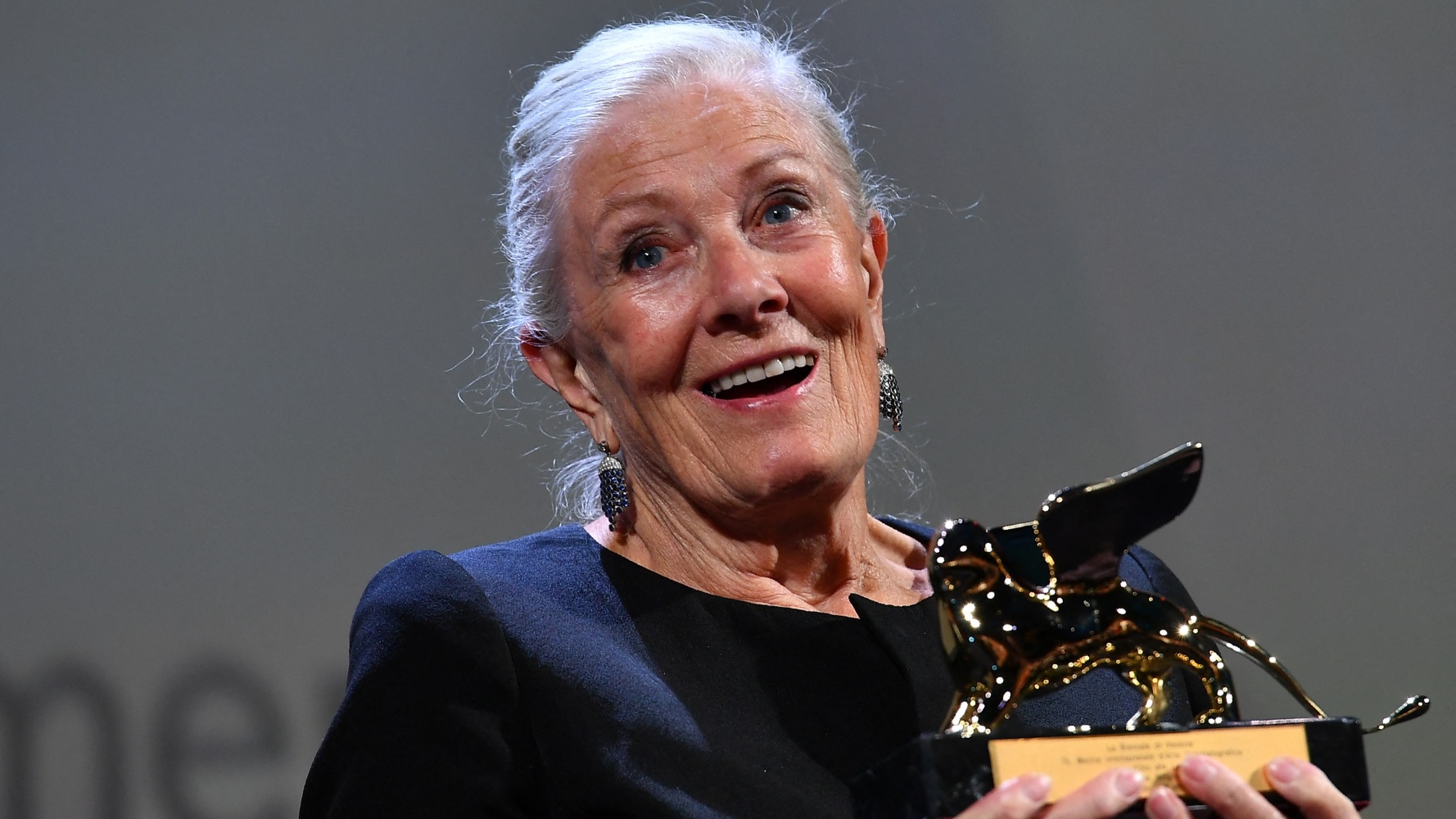Why Hollywood needs a reckoning over its pro-Israel cancel culture
In recent weeks Hollywood stars, such as Susan Sarandon and Melissa Barrera, have been dropped by studios and agencies for criticising Israel’s assault on Gaza

In 2005, not long after the disastrous US invasion of Iraq, liberal Hollywood felt comfortable enough to target then-US President George W Bush.
One of the biggest award contenders that year was Stephen Gaghan’s Syriana, a political drama exploring the questionable facets of America’s addiction to oil.
George Clooney played a worn-out CIA operative tasked with assassinating an Arab prince who earns US ire by awarding a lucrative oil contract to the Chinese.
Clooney earned his first and only Academy Award for Syriana and during a famous acceptance speech, declared:
“We are a little bit out of touch in Hollywood every once in a while, I think. It's probably a good thing. We're the ones who talked about AIDS when it was just being whispered, and we talked about civil rights when it wasn't really popular.
"And we, you know, we bring up subjects, we are the ones - this Academy, this group of people gave Hattie McDaniel an Oscar in 1939 when blacks were still sitting in the backs of theatres. I'm proud to be a part of this Academy, proud to be part of this community, and proud to be out of touch. “
Perhaps because of its naive earnestness, Clooney’s speech stuck with me through the years, popping up in my head as Hollywood’s shady wheeling and dealing began to be exposed in subsequent years.
Since then, Hollywood has had #MeToo, #OscarsSoWhite, Golden Globe corruption scandals, the rise of diversity politics and the recent Screen Actors Guild and Writers Guild of America strikes.
These seismic shifts have changed Hollywood beyond recognition, but one aspect remains unchanged: its enduring relationship with Israel.
It is that relationship that is now under the microscope amidst the cultural fallout of the ongoing war in Gaza.
Recent cancellations
Within the last month, Hollywood icon Susan Sarandon was dropped by United Talent Agency (UTA) for comments she made at an anti-war rally, stating: “There are a lot of people that are afraid, afraid to be Jewish at this time, and are getting a taste of what it feels like to be a Muslim in this country, so often subjected to violence.”
That same day, Spyglass Media Group similarly dismissed actress Melissa Barrera from the long-running Scream franchise for her criticism of Israel's actions in Gaza.
The dismissals were preceded by the exit of Creative Artists Agency (CAA) agent Maha Dakhil from the firm.
According to a 21 November article by Variety, CAA has also dropped Saira Rao and Regina Jackson, who co-wrote the 2022 book White Women: Everything You Already Know About Your Own Racism and How to Do Better for comments supporting Palestinians.
The same article also claimed several agents at UTA were pushing to have writer Ta-Nehisi Coates dropped from the agency.
All of the punished artists had dubbed the situation in Gaza as “genocide”, a word that Variety notes has long been a taboo in Hollywood.
The reasoning for this is twofold: associating staunch criticism of Israel with antisemitism, and implying that the usage of the term “genocide” is an appropriation of past Jewish traumas.
None of the statements justifying the dismissal of Hollywood talents made any reference to the more than 17,000 Palestinians and 8,000 children murdered by the Israeli forces thus far, or to the American Jewish Voice for Peace movement that did in fact refer to Gaza as a “genocide”.
Hollywood institutions have also been condemned for not backing Israel strongly enough.
A critical voice who berated the WGA for its reluctance to publicly back Israel was writer David Shore, who according to Variety, was stunned by the guild’s purported lack of action.
“There was an opportunity to stand up and be one of the groups who said we stand with the victims of this terrorist attack,” he says. “I was disappointed that they did not do that.”
The WGA did not make any statements on Israel's Gaza killings either, yet not a single voice in Hollywood went and berated it for its silence.
If the handful of Hollywood’s vocal Israel critics can acknowledge the wrongdoings of civilian killings by Hamas, why can’t a single pro-Israel talent in Tinseltown also acknowledge the rampant murders the Zionist state has committed not just since 7 October but over the past 75 years?
Is Israeli blood more precious, more valuable, than Palestinian blood? Or are Palestinian lives so disposable that they don’t warrant a single mention?
Hollywood and Zionism
The strong ties between Hollywood and Israel are rooted in a long history at least partially engineered by the Israeli government and American Zionist groups.
In the 2022 book, Hollywood and Israel: A History, scholars Giora Goodman and Tony Shaw explore how Hollywood helped bolster Israel’s image for decades. As Goodman and Shaw suggest, Israel saw in Hollywood an ideal vehicle to help garner worldwide support for its nascent state.
How stars and film executives, both Jewish and Christian, were converted to Zionism is never explained in the book, remaining a blind spot in Hollywood’s relationship with Israel.
While vehemently expressing support for Israel, Jewish executives were, in fact, reluctant to produce films about the Zionist state, simply because they saw little profit in the presented stories.
Otto Preminger’s notorious 1960 epic Exodus was the exception to the rule: a lavish production about the birth of Israel that hit a chord with American audiences thanks to a sentimental narrative featuring good-natured white people in the midst of a good fight to preserve their country.
Much ink has been spilled on the corrosive impact of Exodus in demonising Arabs and Palestinians.
The film was unabashedly anti-Arab. Leon Uris, author of the source novel, stated that if he wasn’t writing books about Israel, he would rather be “over there shooting Arabs”.
Prior to Exodus, the other major Hollywood picture about Israel was Edward Dmytryk’s lesser-known The Juggler (1953) which, as Goodman discovered, was filmed in the Palestinian village of Iqrit.
“[The irony of] the scene itself, in which Kirk Douglas is talking about Jewish homelessness and loss, because of the Holocaust” was in reality drawn from the fact that the Palestinian homes of Iqrit had been blown up by Israel on Christmas Eve of 1951 after the Arab population was forcibly evicted in 1948.
The commercial and critical failure of 1966’s Cast A Giant Shadow, a star-studded wartime drama fronted by Kirk Douglas, John Wayne, and Frank Sinatra about an American colonel readying Israel to fight the Arabs – dented Israel’s hopes of more promotional stories.
A number of Israeli propaganda pieces were produced in Hollywood down the years: Daniel Mann’s Judith starring Sophia Loren; John Frankenheimer’s Black Sunday (1977); and the TV movies Raid on Entebbe (1976) and A Woman Called Golda starring Ingrid Bergman in the role of Israel’s eponymous late prime minister.
And then of course there are the 1980s B-actioners of Israeli producers Menahem Golan and Yoram Globus, who made a healthy career out of mocking, defaming, and dehumanising Arabs in more than a dozen films. The most repugnant of these is The Delta Force (1986) starring Chuck Norris and Lee Marvin.
High-profile supporters
Over the course of 75 years, the number of Israeli propaganda films produced by Hollywood is admittedly few and far between. It’s the staggering number of Hollywood stars who have supported Israel over the years that conveys the love affair between Hollywood and Israel.
From Kirk Douglas and Sammy Davis Jr to Elizabeth Taylor and Frank Sinatra, the Zionist state was fully embraced, backed, and promoted by Hollywood, a treatment no other country has received in Tinseltown.
The 30th anniversary of Israel telecast in 1978 remains a lasting reminder of this bond. In it, Hollywood’s most iconic stars, Henry Fonda, Paul Newman, Gene Kelly, Dean Martin, amongst others, participated in a gala that memorably featured Barbra Streisand singing the Hatikvah, Israel’s national anthem, and interviewing Golda Meir.
Ironically, outward Hollywood support for Israel began to crack that same year when British screen legend Vanessa Redgrave famously used her Oscar speech to attack the “small bunch of Zionist hoodlums whose behaviour is an insult to the stature of Jews all over the world”.
Redgrave, one of the oldest proponents of Palestine in Hollywood, had bankrolled a feature documentary about the subject titled The Palestinian in 1977.
Israel’s aggressions in the occupied Palestinian territories in the late 1970s, coupled with its invasion of Lebanon in the following decade, contributed to the country’s loss of clout in Hollywood, according to Goodman and Shaw.
Younger Jewish generations grew disillusioned with Israel as its actions in Palestine became relentlessly violent, while Hollywood as an institution maintained a distance from Israeli stories, although its alliance with the Zionist state remained firmly intact.
Disparate signals over the years substantiate the latter point. The hostile reaction in Jewish circles to Steven Spielberg’s 2005 film Munich, which openly questions the moral motives of Israel’s use of violence, was one notable case in point.
Defining antisemitism
The current wave of silencing of anti-Israel sentiment is more spine-chilling than anything that came before it, including the decades-long vilification of Arabs in Hollywood films.
Before the tides of change in the 1980s, one can understand Hollywood's sympathetic position towards Israel: the Holocaust and the American idleness towards the Jewish genocide undeniably played a role; the hostility of Israel’s Arab neighbours cast the country in the role of the lone sheep surrounded by a vicious pack of wolves in American eyes; the successful efforts to link Zionism to Jewishness strengthened Hollywood ties with Israel.
In 2023, none of these factors stand, however. A growing number of liberal Jews both in Israel and around the world no longer have an affiliation with Zionism.
Most of Israel’s former Arab enemies have signed peace agreements with the country, including Egypt and Jordan.
It is mind-boggling that any an artist with a modicum of conscience, knowledge, or intelligence in this day and age can still equate anti-Zionism with antisemitism
The use of the Holocaust by the Israeli state, meanwhile, as a tool to repress, murder, and rob Palestinians of their fundamental rights for self-determination has proven time and time again nothing more than a tactic that ultimately demeans its legacy.
This is the reality that Israel's backers in Hollywood have deliberately chosen to ignore. It is mind-boggling that any artist with a modicum of conscience, knowledge, or intelligence in this day and age can still equate anti-Zionism with antisemitism.
It is mind-boggling that a woke industry that champions freedom and justice can treat a crushed populace with no discernible influence or power with such apathy.
Anti-Defamation League CEO Jonathan Greenblatt told Variety: “There’s plenty of room for criticism of Israel or to voice concerns about the ongoing war in Gaza, but that doesn’t provide celebrities and industry reps with an open licence to wage unfair accusations against Israel, such as accusing it of ‘apartheid’ or ‘genocide’ or, worse, to celebrate the actions of Hamas terrorists.”
Among others, Noam Chomsky, the greatest linguistics thinker of our time, has described Israel’s treatment of Palestinians as "worse than apartheid", but Greenblatt clearly knows better; the systematic ghettoisation, expansion of settlements, and killings of thousands are surely “unfair accusations against Israel”.
As for the objections to the use of the term “genocide,” would an avoidance of the word let Sarandon, Dakhil and Barrera off the hook? Would Greenblatt and others have been content if “mass killings”, "massacre" or another term were used instead? Would different semantics soften the blow of what is happening in Gaza?
In one of the most incisive commentaries on the Barrera fiasco, Indiewire’s chief critic David Ehrlich wrote on X that “this Melissa Barrera shit is infuriating. The definition of ‘antisemitism’ is being devalued so fast and in such bad faith that it will soon lose all meaning, which probably isn’t *great* for the Jews long-term. Alas, by definition, Zionism doesn’t care about anything but itself.”
Antisemitism is real; its detestable impact is more tangible for anyone fearing for the safety of their Jewish friends. And once again, what Hamas did on 7 October to Israeli civilians is condemnable. All hostages should be freed, but not just Israelis…the Palestinians who have been languishing in prisons for years with no charge must be let go as well.
The Bush-like “you’re either with us or against us” rhetoric Hollywood’s top brass continue to adopt is not only archaic and regressive, it is downright fascistic.
https://www.middleeasteye.net/discover/hollywood-needs-reckoning-pro-israel-cancel-culture
Cancel culture
It took Hollywood nearly half a century to acknowledge the USA's brutal treatment of colonised Native American people. Likewise its erasure, stereotyping and mistreatment of Black Americans.
To date, Hollywood has never apologised for its disdainful conduct towards Arabs; for continuing to back the last colonising nation on the planet while churning out self-congratulatory pictures on the Rwandan genocide and Vietnam.
Since the Sarandon and Barrera debacle, there has been complete silence over the war in Hollywood. John Cusack, Barrera, Boots Riley and Cynthia Nixon are the sole major figures continuing to be vocal against Israel.
To date, Hollywood has never apologised for its disdainful conduct towards Arabs
Nixon, star of Sex and the City, specifically came under fire for embarking on a hunger strike to end the war with writer Michael Seitzman asking, “What’s she planning on doing to free the hostages?”
Sarandon, on the other hand, was forced to apologise for her rally comments, but she remains shunned by Hollywood, with a production company revealing this week they dropped her from a role in a short movie “due to her recent statements”.
Although initially ostracised, Vanessa Redgrave found no shortage of work after her Oscar speech, and was twice nominated for Academy Awards.
The cancel culture Sarandon and Barrera are operating in is, however, more punishing, more callous, more belligerent than the 1970s.
Hollywood no longer represents global public opinion. Like Israel, it is an isolated, self-serving entity flourishing on imperialism.
People will not stop watching Hollywood movies, even as the wave of silencing persists. But the moral superiority Hollywood long paraded, the one Clooney so dashingly boasted of in 2005, has been exposed as an empty marketing ploy.





0 Comments:
Post a Comment
Subscribe to Post Comments [Atom]
<< Home